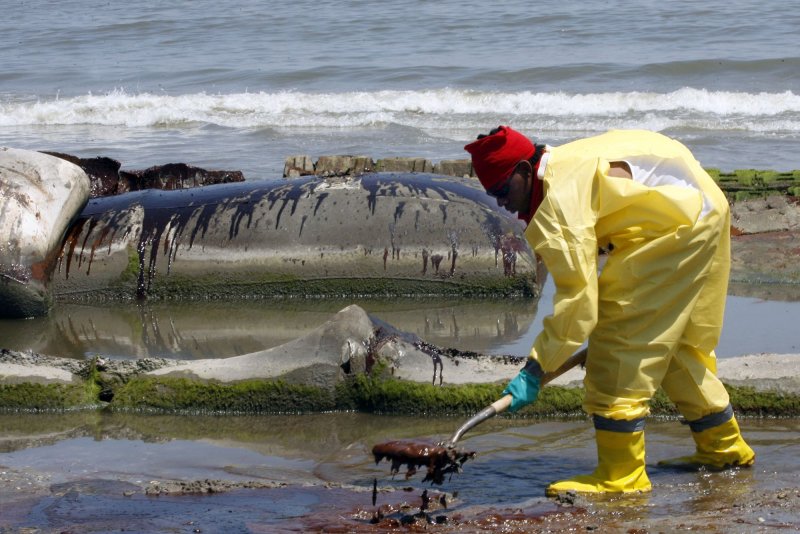Federal government challenges BP assessment about the state of the environment along the southern U.S. coast in the wake of the 2010 Deepwater Horizon incident. File photo by A.J. Sisco/UPI |
License Photo
WASHINGTON, March 17 (UPI) -- Statements made by BP about the state of the U.S. Gulf Coast environment after the Deepwater Horizon incident are off the mark, state and federal trustees said.
"The state and federal trustees, including our scientific colleagues at universities and institutions around the Gulf [of Mexico], are engaged in a rigorous, scientific process of injury assessment and are still analyzing the data, conducting studies, and evaluating what happened," a statement emailed by the National Oceanic and Atmospheric Administration on behalf of the Deepwater Horizon Trustee Council late Monday read.
A cascading series of events tied to the Deepwater Horizon rig, which BP leased from Transocean, led to a spill of more than 3 million barrels of oil, about 10 times the size of the Exxon Valdez incident off the Alaskan coast in 1989. The Deepwater Horizon event left 11 rig workers dead.
BP in a report released Monday said the environment along the southern U.S. coast was "returning to its baseline condition." Most of the damage to the regional environment occurred during the spring and summer following the event, the assessment adds.
Carl Barbier, the judge overseeing the case in the U.S. District Court of the Eastern District of Louisiana, ruled in January the company released 3.2 million barrels of oil into the Gulf of Mexico in 2010, about 1 million barrels less than the government estimated.
BP said it based its findings on a wide range of federal, academic and industry studies conducted in coordination with the spill response. Laura Folse, BP's vice president of environmental restoration, said doomsday environmental predictions never emerged.
"The gulf is showing strong signs of environmental recovery, primarily due to its natural resilience and the unprecedented response and cleanup efforts," she said in a statement.
The trustees countered that BP "misinterprets and misapplies" data and findings about the extent of the damage to the regional environment.
"From decades of experience with oil spills, we know that the environmental effects of this spill are likely to last for generations," the statement said.
[Corrected to note the statement was not from NOAA, rather, emailed by NOAA on behalf of the Deepwater Horizon Trustee Council, of which the administration is a member.]















